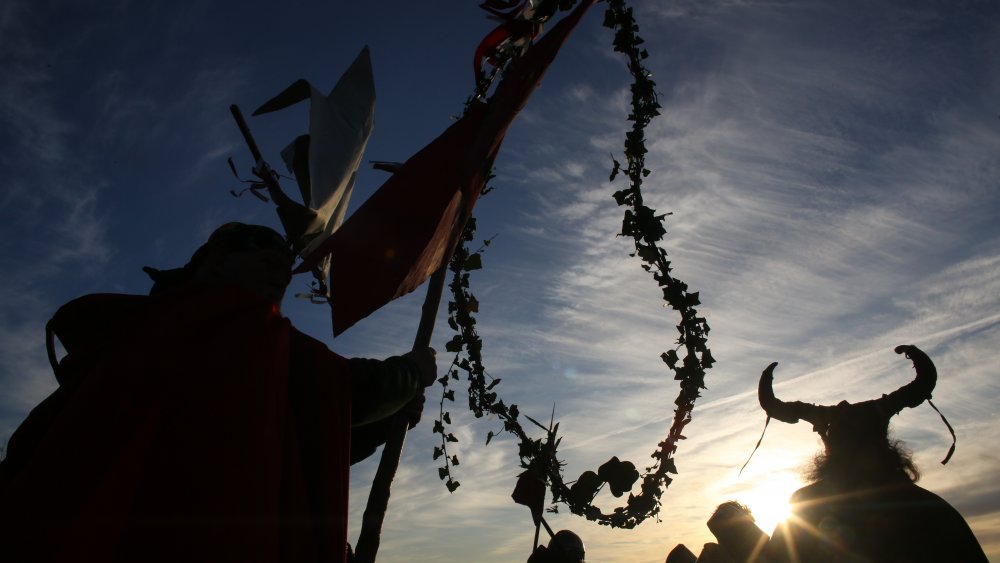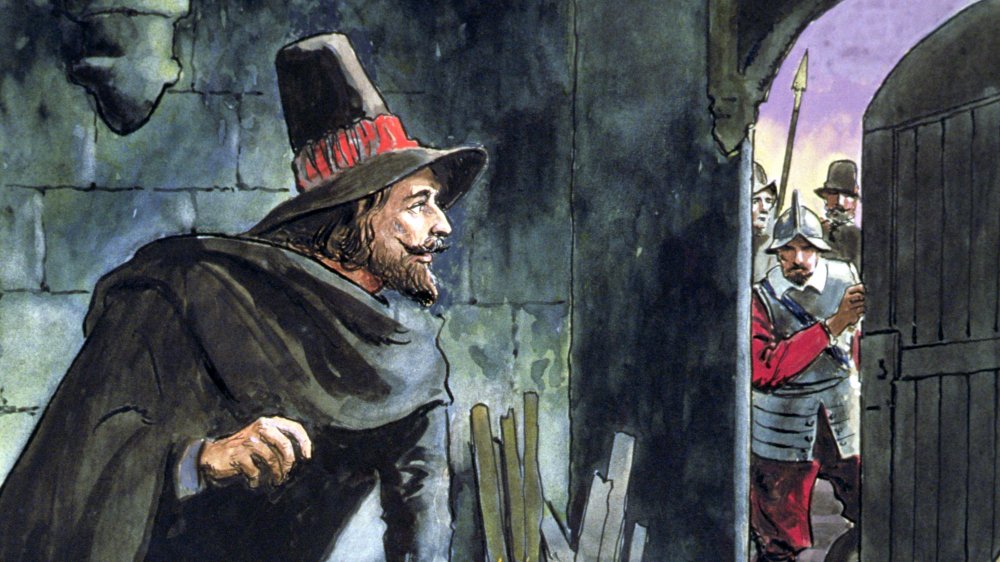The Real Reason People Participate In Mischief Night
Devil's Night, Mischief Night, Goosey Night, Moving Night ... Cabbage Night? Going by different names in different countries, and even regions, as explained by River Valley Group, the night before Halloween has a reputation for being a night of egg-throwing, toilet paper tossed over houses, petty theft, other relatively benign crimes and, well, mischief. But if Halloween, on October 31st, derives from the ancient Celtic festival of Samhain (pronounced sah-wain), which was absorbed into November 1st's All Saint's Day in the 8th century under Pope Gregory III, per History, what exactly is the relationship between Mischief Night and Halloween? And why do people celebrate it at all? Samhain, after all, was a day where it was believed that the worlds of the dead and living intersected, and ghosts returned to Earth. Mischievous ghosts, perhaps?
As it turns out, Mischief Night may have developed over the centuries in a totally coincidental way that may in fact be related to November 4th, Bonfire Night, the day before Guy Fawkes Day (come on, V for Vendetta fans: "remember, remember, the 5th of November"). Back in the 1700's, English law allowed for what were referred to as Lawless Hours or Days. These were times when rules were rescinded, and folks legally engaged in cheeky behavior like throwing cabbage (aha! Cabbage Night) or swapping shopkeepers' signs (aha! Moving Night), as reported by the BBC. Basically, we're talking about an honest-to-goodness, but far less lethal version of, The Purge.
Like the Purge, but without all the murder
So it may be self-evident why anyone would want to participate in a non-murderous purge, provided no real harm is done to person or property (just a bit of labor to clean or re-move things). Dangerous versions of Mischief Night have cropped up over time, through, such as 1967's arson and riots in Detroit, as explained in Bustle, which likely arose from protests against police brutality. The modern version of Mischief Night didn't take root in the US until the 1930's or 40's, as Time magazine outlines. Much like the aforementioned Detroit riots, it was probably due to the stress of coming out of the Great Depression. And so, Mischief Night's original connection to Guy Fawkes Day, an anti-authority, anti-government celebration, makes further sense in this regard.
As for how Mischief Night wound up shifting from November 4th to the night before Halloween, and lining up very nicely with the mischievous mask-wearing and candy-grubbing descendant of Samhain, it may have to do with England changing to the Gregorian calendar in 1752 from the Julian calendar (right in the heyday of Lawless Hours). Some holidays got shuffled around, and lo and behold: Mischief Night wound up falling on the evening before Halloween, as the first of a sort of holiday bundle that still included Bonfire Night and Guy Fawkes Day.
Even though Mischief Night fell out of practice for awhile, the human desire to rebel won out, and rediscovered a time-honored outlet.

